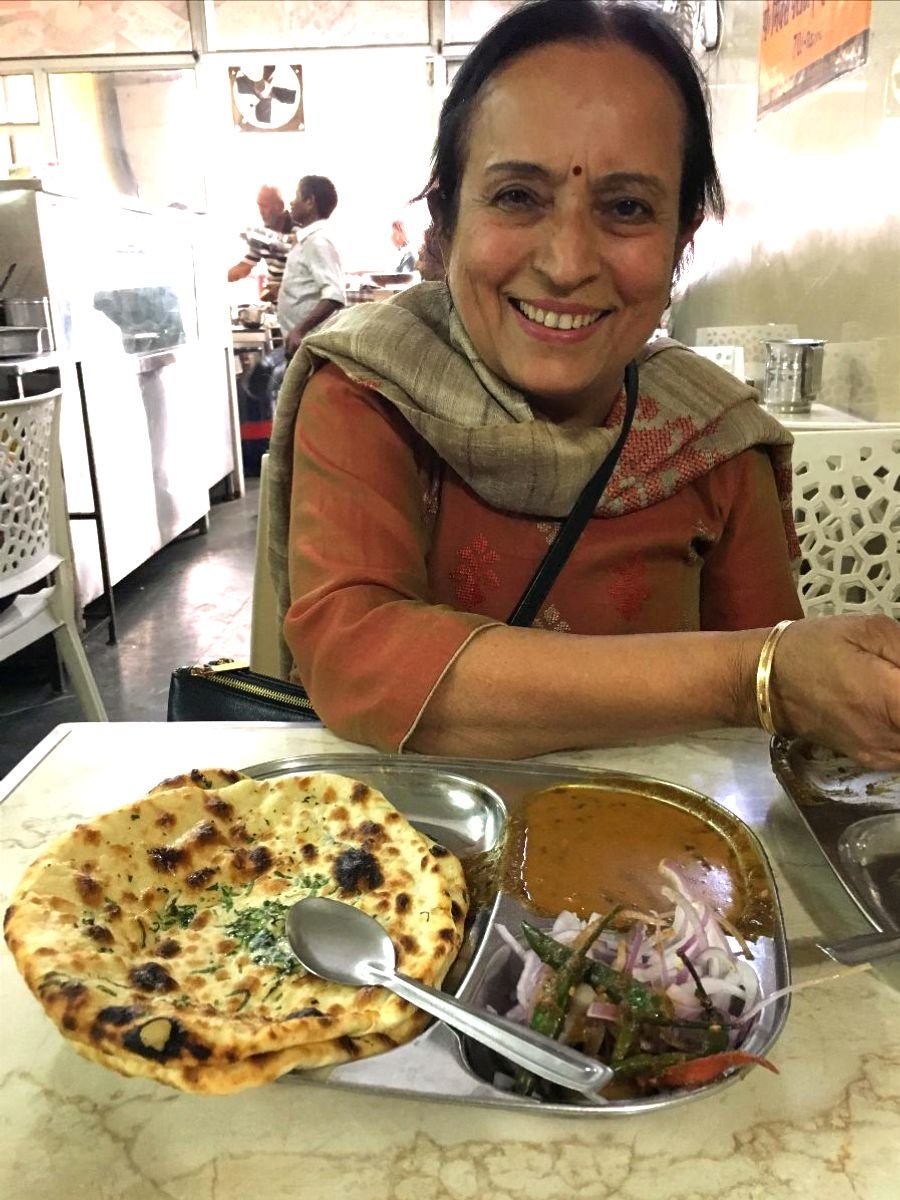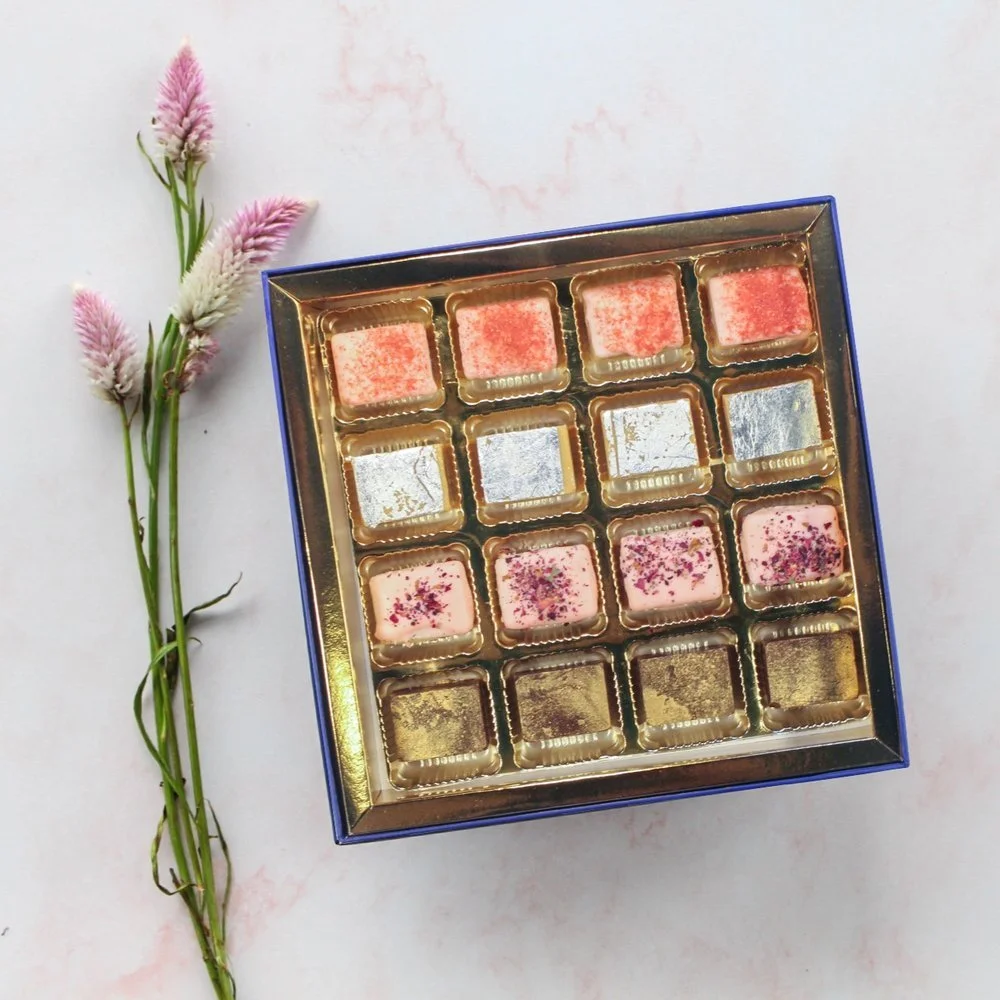REFLECTING ON MOTHER’S DAY
For many people, Mother’s Day is a time to celebrate the maternal figures in their lives, whether they are biologically related, adopted, or chosen.
What makes a mother isn’t anatomical or necessarily gendered, but it’s the spirit of love and nurture that they bring into our lives that is deserving of the title. Motherhood and the myriad ways that we are mothered throughout our lifetimes is nothing short of expansive.
The world is a flurry of bouquets and brunches, but this annual event can feel bittersweet for a lot of us. While we’re up in our feelings, we can still claim abundant joy and celebrate the unconventional ways that we have been and continue to be mothered.
NURTURING THROUGH FOOD
Chef Surbhi’s mother died unexpectedly when she was a small child. After this loss, Surbhi’s Mamiji (her aunt) stepped in to help her father shoulder the responsibility of caring for young Surbhi. She helped raise her small niece and often fed her from her hand. Home cooked meals like Safed Chana and Hari Fali Aloo were vehicles of love in a time of heartbreak.
Some of Surbhi’s core memories are the weekdays she spent after school with her Mamiji, uncle and two cousins. They treated Surbhi not like a niece, but as one of their own children. Mamiji took her to buy dresses, and her uncle would surprise her with school supplies and treats. They filled in the gaps, attending parent teacher meetings and hosting birthday parties for Surbhi every year. “I can still remember the taste of my Mamiji’s birthday cakes that she made on the stovetop,” Surbhi recalls.
Even as an adult, when Surbhi goes back to India to visit (which has been years since before the pandemic), Mamiji still lovingly insists on feeding her, no matter what time of day or the occasion. Mamiji will disappear into the kitchen and emerge in minutes with a piping hot meal.
The warmth of the food and intimacy of being fed by hand is a conduit for tender love. Food does more than nourish the body, it feeds the soul. It communicates a message that caretaking is not a chore but a gift, because it creates opportunities for intimacy.
Feeding someone, whether it is a home cooked meal or a handmade sweet, is a gesture of spiritual care that transcends material needs. Yes, we must eat to live, but food transports pleasure, history, shared culture and tells us—especially when we are in a vulnerable state—that we matter to someone else.
SOCIAL SURROGACY
Motherhood isn’t all warm embraces and forehead kisses. Many of us have strained relationships—both as parents and as children—to mothering and being mothered.
Families often symbolize traditional norms that are unyielding to the diversity of our identities and the depth of our needs, especially when it comes to gender and sexuality. It is our childhood homes that are often the first places where we suffer loss & abuse, experience isolation for being different, and feel the deep pangs of grief. We are reminded that the closed family unit is a rigid ideal that falls short of what we really need to thrive: supportive, loving, dynamic community.
For Surbhi, her Mamiji’s loving kindness and continued presence, day in and day out, helped to lessen the grief of losing her mother at such a young age. “She is my second mother who shaped my life growing up,” says Surbhi. “So much of who I am today is thanks to her.”
EXPANSIVE MOTHERHOOD
As a mother of a college age daughter, Surbhi has learned to adapt her understanding of the kinds of mothering she inherited with ongoing growth today, balancing therapy. work, friendships, and romantic partnership with the needs of a Gen Z kid wading into the waters of adulthood.
Within the LGBTQ+ community, where gender is often as much of a part of one’s queerness as is their sexuality, we reflect a lot on the examples of family and parenthood that we saw growing up. We strive to do better, love deeper, and embrace each other as we are. We are often each other’s moms. dads, siblings, and more.
As queer people, we deconstruct familial roles, dressing them up, taking them off, and trying on diverse ways we can relate to each other. We are queers bebés, trans elders, gay uncles and butch daddies. We take turns mothering and being mothered, understanding that vulnerability is a gift because it brings us closer together.
To all who observe Mother’s Day, take this day to reimagine tenderness, reach out to someone for whom this day isn’t easy, and spread the sweetness of love.




